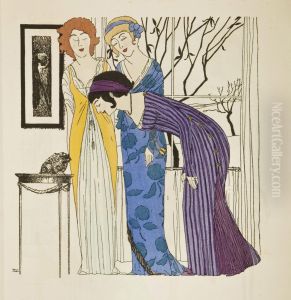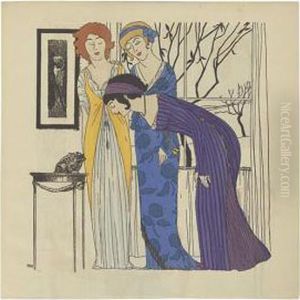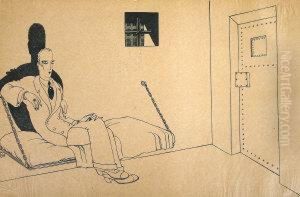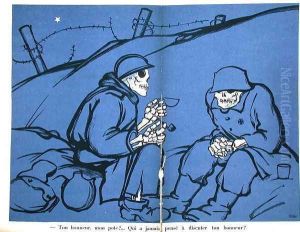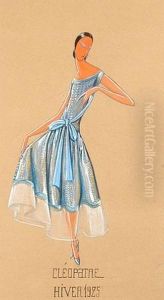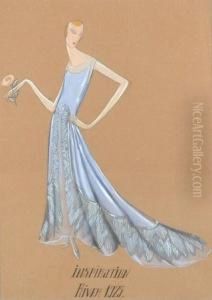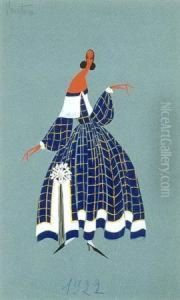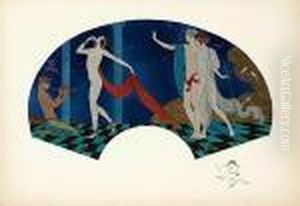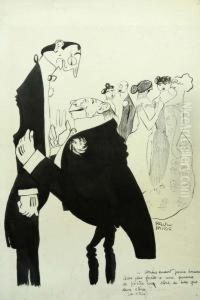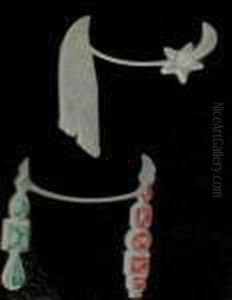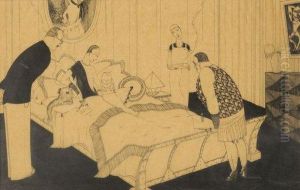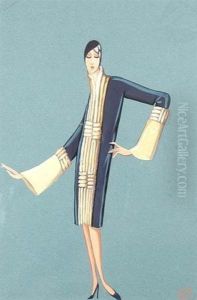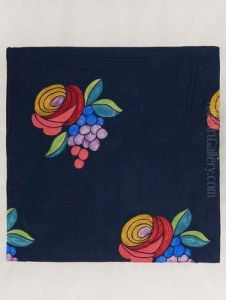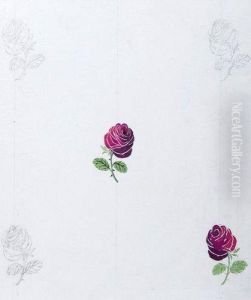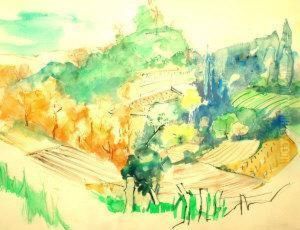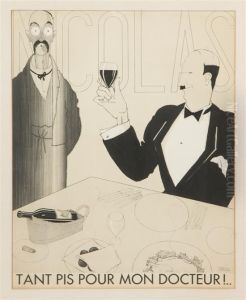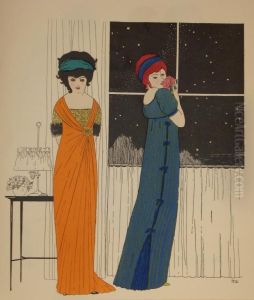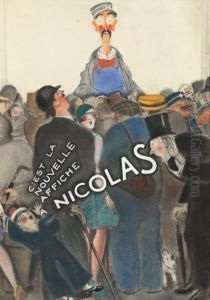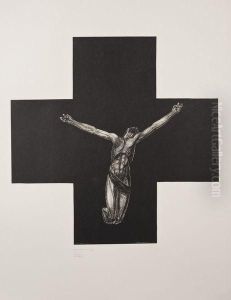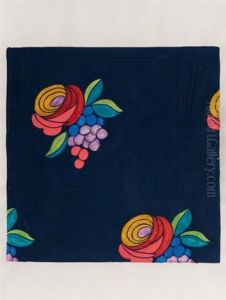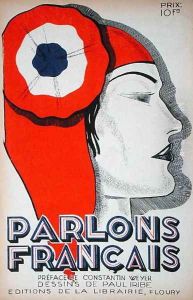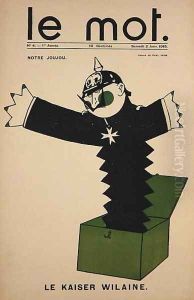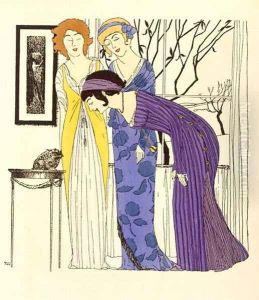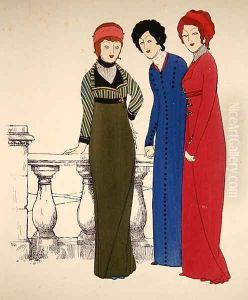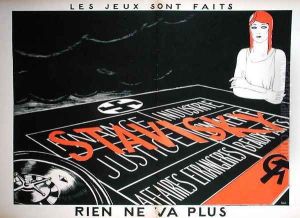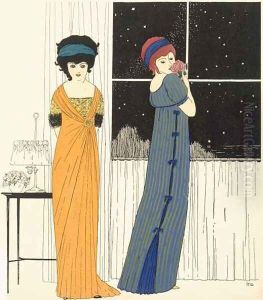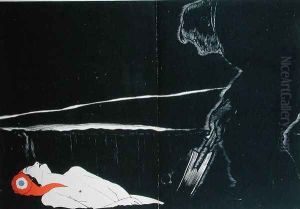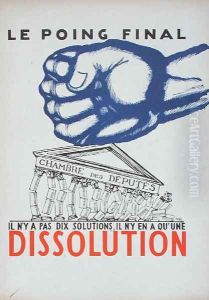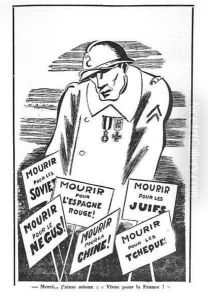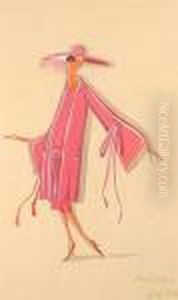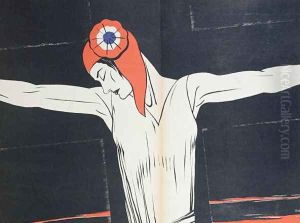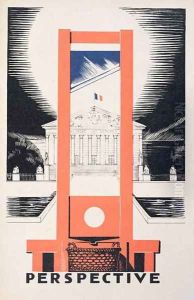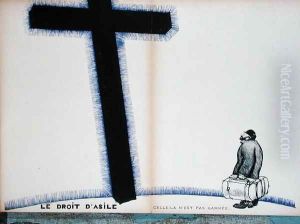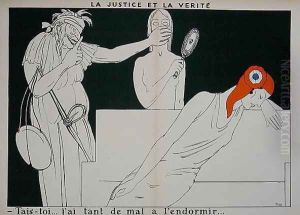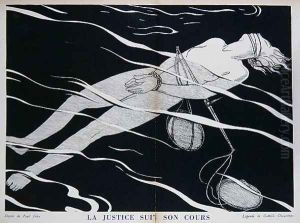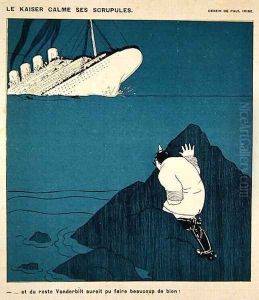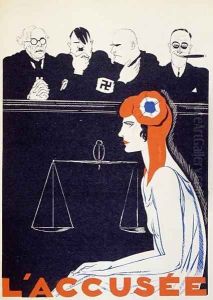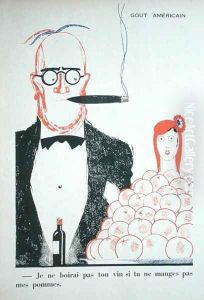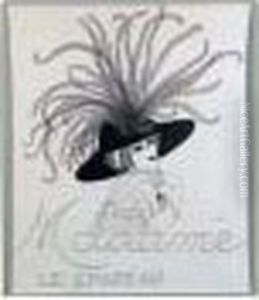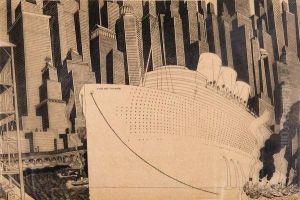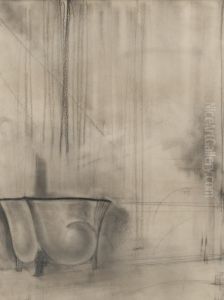Paul Iribe Paintings
Paul Iribe, born Paul Iribarnegaray on June 8, 1883, in Angoulême, France, was a renowned French illustrator, ensemblier, and designer, considered one of the pioneers of the Art Deco movement. His work was influential in the decorative arts during the early 20th century, and he was known for his distinct style that blended modernist sensibilities with classical French tradition.
Iribe received his education in Paris at the École Professionnelle de Dessin Industriel. He began his career as an illustrator, contributing to several prominent French publications such as 'L'Assiette au Beurre' and 'Le Rire'. His satirical and politically engaged illustrations reflected the social and political climate of the time, and he gained recognition for his sharp and often controversial commentary.
In 1908, Iribe collaborated with couturier Paul Poiret to produce 'Les Robes de Paul Poiret', a limited-edition portfolio that was groundbreaking in fashion illustration. This collaboration showcased Iribe's talent in representing the fluidity and elegance of Poiret's designs, and it played a significant role in shaping the visual direction of fashion in the early 20th century.
Iribe's career took a significant turn when he moved to the United States in the 1910s. There, he worked in Hollywood as an art director, set designer, and decorator. His Hollywood venture was marked by his work with film director Cecil B. DeMille on movies such as 'The Cheat' (1915). Iribe's influence extended to the overall visual aesthetic of the films of that era, and his innovative use of design elements helped shape the look of early American cinema.
After his time in Hollywood, Iribe returned to France where he continued to work as a designer and decorator. He was involved in designing furniture, jewelry, and other decorative objects. His style during this period became synonymous with the emerging Art Deco movement, which was characterized by rich colors, bold geometric shapes, and lavish ornamentation.
Iribe's later years were marked by his involvement in politics, where he supported the French nationalist and conservative movements. He founded the controversial weekly publication 'Le Témoin', which reflected his political views. Despite the contentious nature of his political stance, his artistic contributions remained significant.
Paul Iribe's legacy is that of a versatile artist whose work spanned illustration, fashion, and design. His influence on the visual arts and his role in the development of Art Deco continue to be acknowledged by historians and designers. Iribe died on September 21, 1935, in Roquebrune-Cap-Martin, France, leaving behind a body of work that remains influential to this day.
